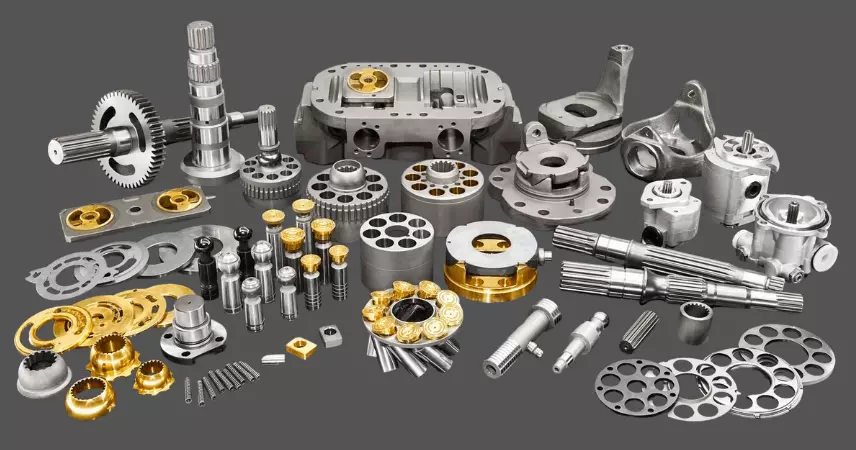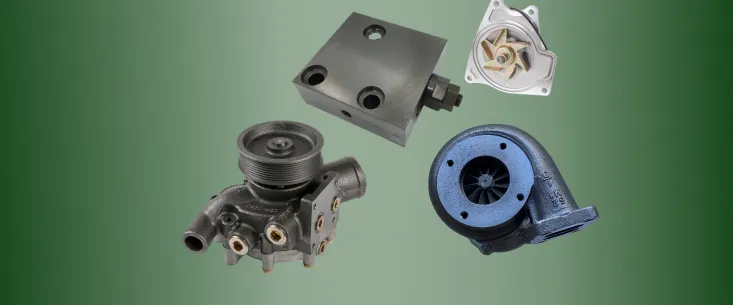+86-135 3388 0668

In the ever-evolving world of engineering, construction, and industrial applications, the need for power and mobility has never been more critical. Whether on a remote construction site, in agricultural settings, or for emergency repair services, the portable Hydraulic pump has become a key player in ensuring efficiency and reliability. With the promise of high-powered solutions in a compact, mobile form, these devices have revolutionized industries across the globe.
A portable hydraulic pump is a small yet mighty powerhouse, designed to supply hydraulic pressure and operate various machinery and tools where traditional, stationary pumps would be impractical. These pumps work on the principle of hydraulic power—transmitting force through the movement of fluids under high pressure—allowing users to perform powerful tasks while enjoying the flexibility of portability. Their ability to be easily transported and deployed has made them indispensable for tasks ranging from lifting heavy machinery to powering small tools and performing critical emergency repairs.
Why Are Portable Hydraulic Pumps Essential?

The essential nature of portable hydraulic pumps lies in their versatility. Many industries and sectors demand portable, reliable power solutions that can be quickly deployed in multiple environments. The compact nature of these pumps allows workers to transport them to remote areas, reducing downtime and improving overall productivity. For instance, construction sites often face changing conditions where the need for portable power is paramount. Whether workers need to lift heavy objects, perform road repairs, or operate pneumatic tools, the portability and strength of hydraulic pumps offer the ultimate solution.
Moreover, in agriculture, where large machinery must be kept operational even in hard-to-reach fields, a portable hydraulic pump provides the required power for various applications like irrigation systems, harvesting machines, and equipment repairs. The flexibility of hydraulic pumps extends to emergency response situations as well. In disaster-stricken areas, rescue teams often rely on portable hydraulic systems to remove debris, operate specialized tools for saving lives, and assist in crucial recovery efforts.
Key Features of Portable Hydraulic Pumps
A portable hydraulic pump packs numerous features into its compact design, making it an attractive choice for a wide variety of applications. The most notable feature is its ability to provide high pressure with relatively little effort. By converting mechanical energy into hydraulic energy, these pumps enable users to generate massive force and power with minimal physical exertion. The hydraulic system allows for the transmission of force over long distances, which is particularly useful for operating machinery or lifting objects.
Durability and Build Quality
Given that portable hydraulic pumps are used in tough environments, they are built to last. Manufacturers focus on creating pumps that are resistant to the harsh elements, such as dust, rain, and extreme temperatures. Whether used in the scorching heat of a desert or the freezing conditions of a mountain job site, these pumps are designed to maintain their performance and reliability. Durable materials such as aluminum or steel are often used in the construction of these pumps to ensure that they remain functional even under strenuous conditions.
Another critical feature of portable hydraulic pumps is their compact design. Unlike stationary hydraulic pumps, which take up a lot of space and are usually fixed in place, portable models are designed to be lightweight and easy to transport. With some models weighing as little as 30 to 40 pounds, workers can carry the pump on-site without hassle, enabling them to set up and start working immediately. Their portability also means they can be stored conveniently in workshops or trucks, ensuring that they are available whenever and wherever needed.
Portable hydraulic pumps are versatile in terms of their operation. They are often compatible with a range of hydraulic tools and equipment, allowing them to be used for a variety of tasks. For instance, portable pumps are used to operate hydraulic jacks, cylinder lifts, log splitters, and pneumatic tools. Their ability to provide consistent power across multiple tasks and machines makes them indispensable in any setting that requires hydraulic force. Additionally, many models come equipped with various pressure settings, allowing users to adjust the output according to the requirements of the job.
Applications of Portable Hydraulic Pumps
The construction industry is one of the biggest beneficiaries of portable hydraulic pumps. These pumps are essential for a wide range of construction tasks, including material handling, lifting heavy loads, and operating tools like hydraulic breakers and drills. On construction sites, workers often need to move quickly and adapt to changing conditions. A portable hydraulic pump ensures that they can perform essential tasks with minimal downtime. It is often used in combination with other equipment, such as excavators, skid-steer loaders, and cranes, to provide the necessary hydraulic power for lifting, digging, and breaking down materials.
In agricultural applications, portable hydraulic pumps are used for a variety of purposes. They can power equipment such as irrigation systems, plows, harvesters, and even portable lifts. Farmers benefit from having a hydraulic solution that they can move across fields and use to keep their machinery in working order. Additionally, agricultural machinery often relies on hydraulic systems to deliver the force needed for planting, harvesting, and cultivating crops. A portable hydraulic pump provides the flexibility to address maintenance needs in remote locations, saving both time and money.
3. Emergency and Rescue Operations
In emergency rescue situations, speed is of the essence. Portable hydraulic pumps play a pivotal role in ensuring that first responders can access individuals trapped in collapsed buildings, vehicles, or other structures. Hydraulic rescue tools like cutters, spreaders, and rams are powered by these pumps, enabling rescue teams to perform life-saving operations in tight or hazardous conditions. The compact nature of portable hydraulic pumps makes them easy to transport, deploy, and use in situations where every second counts.
4. Marine and Oil & Gas Industries
Portable hydraulic pumps are also integral to the marine and oil & gas industries. On offshore rigs and ships, these pumps are used to operate various machinery, such as winches, anchors, and heavy lifting equipment. Their ability to function under extreme conditions—such as high pressure, salty environments, and fluctuating temperatures—makes them ideal for these industries. Portable hydraulic pumps also allow for easy maintenance and repair, especially in hard-to-reach areas where large, stationary pumps would be impractical.
Efficiency and Cost-Effectiveness
One of the key advantages of using portable hydraulic pumps is their efficiency. Traditional hydraulic systems can be cumbersome and require significant space and energy. In contrast, portable hydraulic pumps deliver high power output while consuming relatively low amounts of energy. This makes them both cost-effective and environmentally friendly, as they help reduce energy consumption and decrease the overall operational cost.
Furthermore, the compact and portable nature of these pumps means that they are easy to transport and set up, reducing the need for large infrastructure investments. Companies can use portable pumps in multiple projects without needing to invest in separate stationary systems, thus cutting down on both upfront and maintenance costs.
Choosing the Right Portable Hydraulic Pump
When selecting a portable hydraulic pump, there are several factors to consider. The first consideration is the type of task it will be used for. Different applications require different power levels, and hydraulic pumps are available in a range of pressure outputs to meet specific needs. For example, a smaller pump with a lower pressure output may be sufficient for powering hand tools or small machinery, while a more powerful pump may be necessary for lifting heavy loads or operating large equipment.
The size and weight of the pump are also important considerations. While portability is key, it is crucial to ensure that the pump’s size is compatible with the job site. If the pump is too large or heavy, it may be difficult to move and operate. On the other hand, a pump that is too small may not provide enough power for the job.
Another important factor is the pump’s reliability. Since portable hydraulic pumps are often used in demanding environments, it’s essential to choose a pump that is known for its durability and performance under extreme conditions. High-quality pumps from reputable manufacturers are more likely to deliver the consistent results needed for demanding tasks.
Maintenance and Care for Portable Hydraulic Pumps
Maintaining a portable hydraulic pump is essential for ensuring its longevity and optimal performance. Regular maintenance includes checking fluid levels, inspecting hoses and seals for wear and tear, and ensuring that the pump’s pressure settings are functioning properly. Proper storage is also critical—keeping the pump in a dry, secure location away from contaminants will help maintain its functionality over time.
In addition to routine inspections, it’s important to keep the hydraulic fluid clean and free of debris. Contaminants in the fluid can cause the pump to perform inefficiently or even lead to mechanical failure. Ensuring that the hydraulic system is properly lubricated will extend the life of the pump and improve its performance.
Portable hydraulic pumps have become an essential tool in a wide range of industries, from construction and agriculture to emergency services and marine operations. Their ability to provide powerful hydraulic force in a compact, portable package makes them invaluable in situations where mobility and efficiency are paramount. Whether lifting heavy loads, powering machinery, or performing rescue operations, the portable hydraulic pump is a solution that combines convenience, versatility, and reliability.
As industries continue to demand more flexibility and efficiency in their operations, the importance of portable hydraulic pumps will only grow. Investing in high-quality, durable pumps ensures that workers can rely on them to perform demanding tasks with minimal downtime. For anyone in need of reliable, portable power, a hydraulic pump is a solution that can deliver unmatched results.
Search
Blog & News